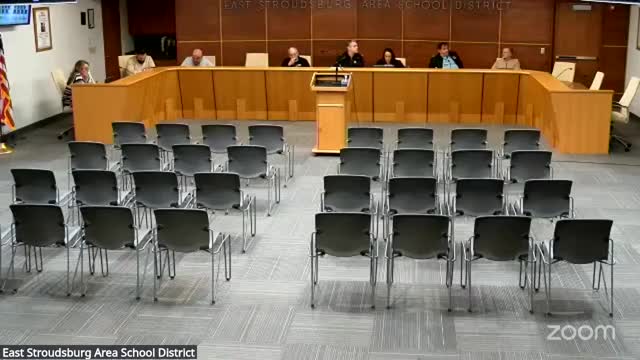East Stroudsburg Area SD reviews options for Christian Memorial Stadium renovations; feasibility study to guide major spending
Get AI-powered insights, summaries, and transcripts
Subscribe
Summary
The board reviewed a range of solutions to address locker‑room conditions, concession‑stand congestion and storage at Christian Memorial Stadium and agreed to wait for a feasibility study and mechanical reports before approving any major construction.
Board members on Monday reviewed several options for renovating Christian Memorial Stadium and agreed to defer major capital commitments until feasibility and mechanical studies are complete.
Maggie summarized work done so far and listed problems the board is trying to solve: communal (pole) showers, lack of dedicated locker space for some teams, concession‑stand congestion and related safety concerns, and deteriorating storage sheds. She recommended a set of relatively small, internal locker‑room renovations (painting, new flooring, installation of a few stall showers) and said the communal shower area would need a competitive bid for construction work.
For the concession‑and‑storage problem, staff described four approaches:
• Move ticket booths and install stanchions to improve flow and reduce congestion in front of the concession area; this is a minor, low‑cost operational change.
• Build a new permanent concession and storage building facing the field with roll‑up doors for equipment storage and concession windows facing the stands; this would solve storage and concession congestion but is a larger capital project.
• Place a shed‑style prefabricated building on the site to serve as a concession and storage space (a smaller, intermediate cost option).
• Use mobile options (food trucks or converted buses) as portable concessions during events.
Rob and other board members said a combined permanent concession-plus-storage unit could address multiple problems (storage, shed replacement and concession layout) and that prior concept drawings had been prepared. Board members repeatedly cautioned about budget limits. Maggie said the district had about $17.4 million in the capital fund at the end of the last school year and, after accounting for anticipated projects, expects to have just under $12 million available this school year; she said roughly $6 million of capital costs remain in the pipeline, leaving roughly $11.6 million that could be allocated pending priorities.
Because the district is simultaneously receiving a facilities feasibility study from RLPS (presentation planned in November and December) and mechanical recommendations from Trane, Maggie proposed tabling any large investment until those reports are complete and a prioritized list can be developed. The board agreed to wait for the feasibility study and additional mechanical and stormwater data before pursuing a major construction project.
